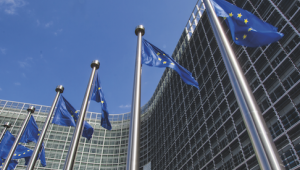As the European Court of Auditors signed off the 2017 EU accounts for the eleventh year in a row, the watchdog reminded the bloc its entire spending is just under €140bn a year, which represents less than 1% of the 28 member states’ total gross national income of €15.18 trillion.
In the negotiations for the next budget period it appears the EU wants to commit to more funding to areas such as defence and border control than previously, the auditors, in their annual report of the EU’s spend, noted.
The watchdog reminded the bloc it had made funding promises it had still not met – and that those promises would to be financed from the coming budget.
ECA president Klaus-Heiner Lehne said in the foreword to the auditors’ 2017 Annual Report, said: “The conclusion [of the report] is straightforward, the EU should not make promises if it cannot deliver.
“If we generate expectations which cannot be achieved, we lose credibility in the eyes of our citizens; more importantly, we lose their trust.”
The president stressed that the auditors were not calling for an increase or decrease in the EU budget, but that money is spent effectively in the 2021 to 2027 budget cycle.
He said: “The Court of Auditors will certainly not wade into a dispute between net payers, who will say ‘downsize our commitments’, and net beneficiaries, who will say ‘do more’.
“We can, however, point to the fact that the growing pile of outstanding commitments will contribute to pushing further into the future the effects of financial programmes which you are negotiating now as legislators.”
Total EU spending in 2017 was €137bn and auditors found the accounts were “true and fair” with fewer errors than in past years.
As a comparison, the governments within the EU spent a total of €7 trillion in 2017 – nearly 50 times more than the bloc’s 2017 spending.
The level of irregularities and errors in the EU’s accounts continued to decrease, the auditors’ report said.
The estimated level of error in payments during 2017 was 2.4%, down from 3.1% in 2016 and 3.8% in 2015.
Each year, the auditors check the EU accounts and provide their opinion on whether they are accurate and reliable and to what extend there is evidence that money was received or paid out in error.
Last month, the ECA warned that EU money was mostly funding social and economic projects on a ‘first-come first-served’ basis rather than merit.
In a separate report, the watchdog also called on the European bloc to make more efficient use of cohesion funding, as it is often “used in a rush” at the end of a programme period.












